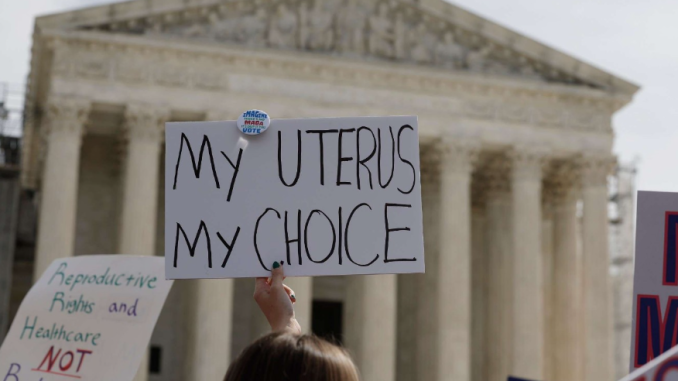
The Supreme Court’s decision in FDA v. Alliance for Hippocratic Medicine should be humiliating for the plaintiffs in this case, their lawyers, and for the lower court judges who signed on to this attempt to ban a commonly prescribed abortion medication.
{snip}
The case was an attempt to ban mifepristone, a drug that is used in over half of all US abortions.
Alliance is fundamentally a case about judge-shopping, a practice that sometimes allows litigants to choose which judge will hear their lawsuit. In this case, the plaintiffs — doctors who oppose abortion and organizations representing those doctors — selected Matthew Kacsmaryk, a longtime advocate for the Christian Right who then-President Donald Trump placed on the federal bench — to be their judge.
{snip}
Kacsmaryk’s opinion was, well, exactly what you would expect from a judge who is determined to fight abortion no matter what the law says. His 2023 decision struck down the FDA’s decision to approve the drug mifepristone in 2000, despite a six-year statute of limitations on such claims. He relied on discredited studies that have since been retracted by their publisher. And he relied on testimony from a “doctor” who isn’t actually a physician at all.
Then his decision was appealed to the United States Court of Appeals for the Fifth Circuit, a court dominated by MAGA Republicans, which narrowed Kacsmaryk’s decision but still effectively banned the drug. It was this decision by the Fifth Circuit that a unanimous Supreme Court reversed on Thursday.
Kavanaugh’s Alliance opinion rests on a legal doctrine known as “standing.” In order to bring a federal lawsuit of any kind, the plaintiff in that suit must show that they were injured in some way by the defendant. As Kavanaugh writes, “for a plaintiff to get in the federal courthouse door and obtain a judicial determination of what the governing law is, the plaintiff cannot be a mere bystander, but instead must have a ‘personal stake’ in the dispute.”
{snip}
That’s not allowed. In Kavanaugh’s words, “a plaintiff ’s desire to make a drug less available for others does not establish standing to sue.”
To get around this requirement, the plaintiffs’ lawyers devised what Kavanaugh dismisses as “several complicated causation theories to connect FDA’s actions to the plaintiffs’ alleged injuries.” But these complicated theories do not actually show that the plaintiff doctors were injured.
One of their arguments, for example, is that if mifepristone remains readily available, a patient might take mifepristone, might then experience a complication that requires a doctor to complete the patient’s abortion, and that one of the plaintiff doctors might then have to perform this procedure even though it violates the doctor’s conscience.
But, as Kavanaugh notes, “federal conscience laws definitively protect doctors from being required to perform abortions or to provide other treatment that violates their consciences.” So this unlikely chain of events can only occur if a plaintiff doctor fails to assert their legal rights.
So the good news for abortion rights is that mifepristone remains legal for now. The bad news is that Kavanaugh’s opinion lays out two ways that anti-abortion advocates could still try to ban it.
One path flows from a brief line near the end of the Alliance opinion: “[I]t is not clear that no one else would have standing to challenge FDA’s relaxed regulation of mifepristone.” Last January, Kacsmaryk ruled that three red states — Idaho, Missouri, and Kansas — could join this lawsuit and press the claim that mifepristone should be banned.
It is far from clear how these states are injured by the mere fact that mifepristone is legal. But Kacsmaryk’s (and the Fifth Circuit’s) behavior in this case and others shows that he’s willing to bend the law into pretzels in order to rule against abortion rights. It is likely, in other words, that Kacsmaryk will simply make up some reason why the red states have standing to sue and then issue a new order attempting to ban mifepristone.
{snip}
More ominously, Kavanaugh’s opinion also points to another way that abortion opponents could try to pull mifepristone from the market: “The plaintiffs may present their concerns and objections to the President and FDA in the regulatory process.”
So long as Joe Biden, or any other Democrat, controls the presidency, the administration is unlikely to bow to these concerns. But if Trump (or any other Republican) should occupy the White House in the future, a Republican-controlled FDA could try to rescind the 2000 approval of mifepristone.
So Alliance is a victory for abortion rights and the rule of law, and it is an embarrassing defeat for Kacsmaryk and his fellow abortion opponents. But it is also unlikely to be the last word in the fight over mifepristone.
